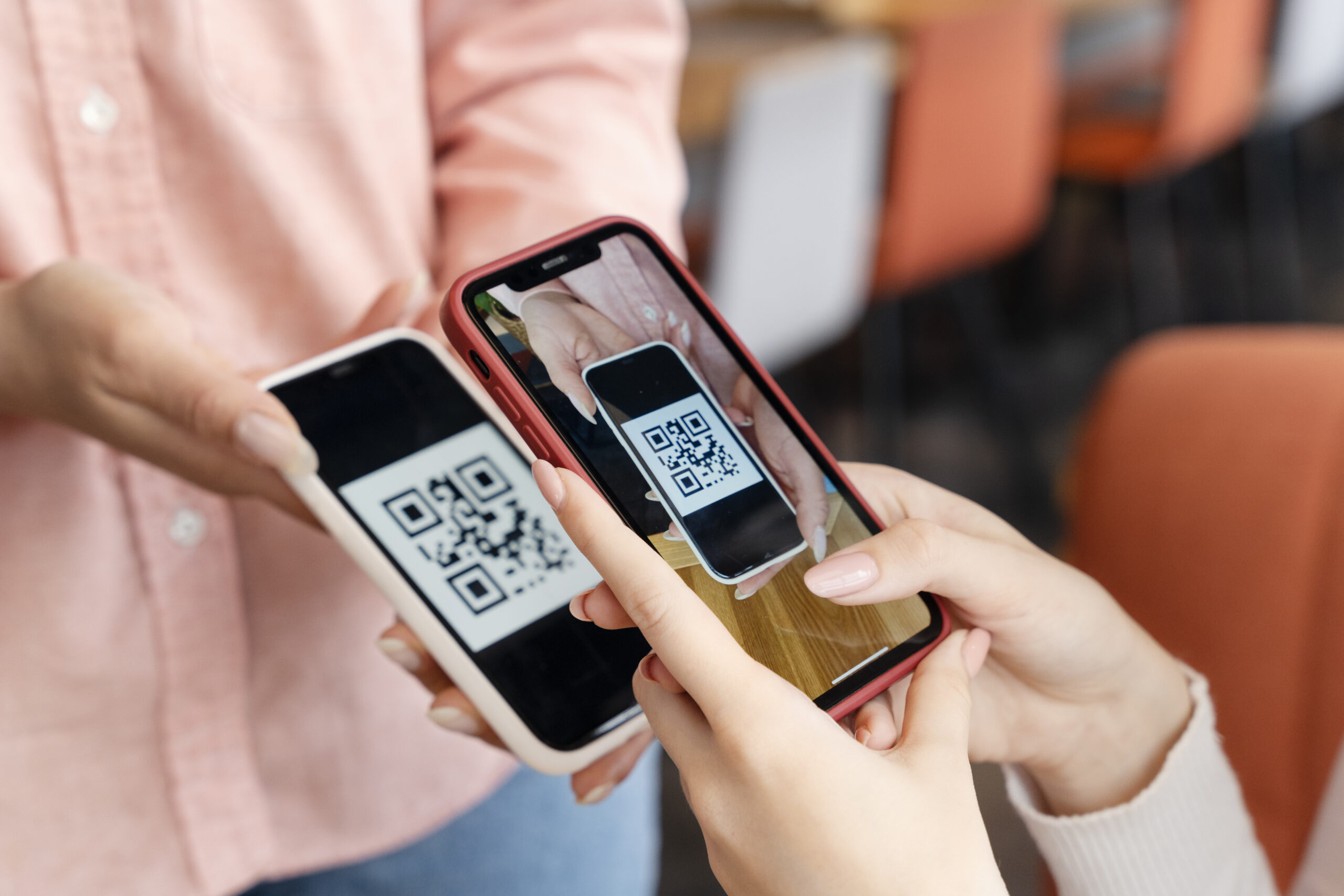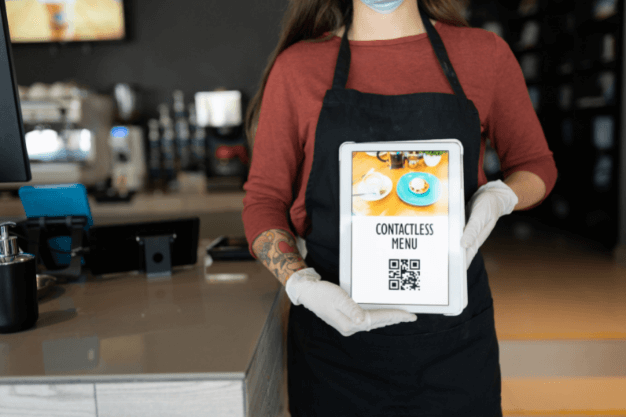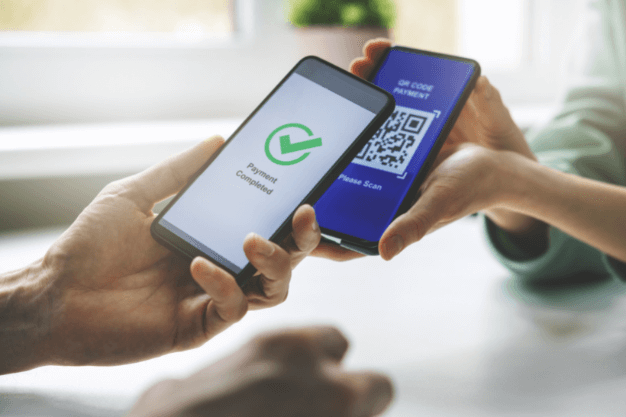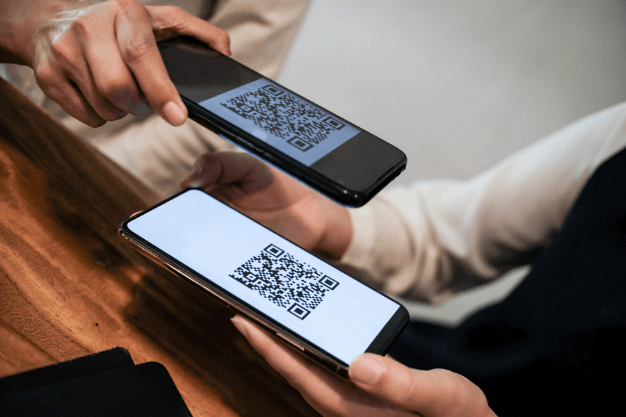There’s a quiet and overlooked little square out there just waiting for businesses to take advantage of it. You may have seen it during the Super Bowl, gliding gracefully across a black sea, changing colors as it bounced off the sides of your TV screen. It’s a simple, unimposing QR code. Ready to instantly and easily connect customers with your business, increase sales, and build your brand reputation.
QR Code, Defined
The QR code stands for Quick Response Code, and it was first used in Japan in the 1990s to track parts during a manufacturing process. But why the sudden rise in popularity in the last ten years? And what makes the QR code unique?
Like a barcode, the QR code represents a visual set of identifiers that can be scanned and read on a device. But the QR code is more powerful and unique than the barcode. Anyone who has a smartphone – and let’s face it, that’s pretty much everyone today – can scan a QR code. It’s also easier to scan than a barcode, as the square can be scanned from top to bottom or right to left, and even with up to 30% damage to the code, it’s still readable.
Frequent Uses Today
If you’ve visited a restaurant in the last year and a half, you’ve likely used a QR code to get to your restaurant’s menu. You’ve seen firsthand how quick and easy it is to make a quick scan and be into your meal choice musings without even a second thought. This ease of use makes the QR code an attractive strategy for businesses today.
QR codes can link to a website, phone number, or email address. As you saw with the last example, they are often used to quickly give a consumer more information about a business, product, event, or anything else you can imagine. Their popularity makes sense when you realize how easy it is to package a ton of information into one code.
Here are a few ways QR codes are being used in everyday life today:
- Restaurant menus
- Wifi passwords
- Collecting tips or paying for a service
- Contact information
- Link instantly to a social media page

Using a QR Code for Your Business
The opportunities are endless with a QR code, limited only by your imagination. As a business creating a QR code strategy, you’ll need to consider the following.
Static or Dynamic:
There are technically two kinds of QR codes: static and dynamic. Though they look the same, they operate differently. A static QR code links to one location that can never change. A dynamic QR code links to a location that can be edited by the business after being created.
Purpose and Destination:
Of course, where do you want this QR code to lead? Yes, this could be as simple as a link to your website. But consider the possibilities. Depending on where the code is located, you could send people to a landing page about the product they’re holding in the store, a promotional video outlining your services, or even a lead capture page.
QR Code Placement:
Finally, where do you put the actual code? Is it a poster in your physical store? A tag at the bottom of your website? A business card or marketing collateral? Find a placement that is unique and creative.

10 QR Code Placement and Use Ideas
1. Infographic
Customers come to infographics for a variety of reasons that may not relate to you as a business. Allow them to see what else you do and connect with your business using a QR code.
2. Directions
Do you have a physical location? You can use a QR code to link to your GPS coordinates and lead customers right to your door.
3. Customer Survey
Encourage customer feedback and reviews of your products and services with a quick scan.
4. Calendar
Do you host events or webinars? Quickly connect a customer to your event with a QR code. You can even link the code to a calendar invite, so the customer instantly adds the event to their calendar, increasing your event’s attendance.
5. Connect to Social Media
As a physical or digital store, use a QR code to instantly connect a customer to your social media profile. Instead of “Follow us at…” where the customer must find you, make following you quick and easy with a simple scan.

6. Coupons, Discounts, or Memberships
Entice customers to scan for a discount. You can also use this as a lead magnet, requiring them to sign up for your newsletter or provide their phone number to get the deal.
7. E-commerce or Other Deliveries
Include a QR code with any deliveries. You can link the code to more information about the product they ordered and offer customer service. This builds brand loyalty. Or you can use it to connect customers to your social media or website to make another purchase.
8. Linktree
A Linktree or other link-grouping service is a landing page where you can send a customer to more than one place. Think of it as bringing the customer to a fork in the road and pointing to the sign that labels each turn. Do they want to go to your social media, learn more about this service, or join your newsletter? The customer decides which road to take.
9. Scan to Pay
Restaurants can use a QR code to allow customers to place an order completely through their phones. Performers or other workers who receive tips can link a code to their Venmo or another method of tipping. How could you use a QR code in a scan-to-pay way?
10. Branded Swag
If you ever give away company swag, include a subtle QR code on the item. You choose where you want this to go. This increases your chances of the customer connecting with you again.

Remember Your Purpose
As you develop your QR code, where you will put it, and what it will link to, be strategic. It’s important to hop onto this trend with intention. Consider what your call to action, or CTA, is. What do you want them to do once they reach where you’ve sent them? Make a purchase? Join a newsletter? How will it help you as a business when a customer scans?
Think of a QR code as another way to connect with customers. Businesses today have a great opportunity to build brand recognition and brand loyalty. A QR code stands not to replace what you are currently doing, but to enhance it. Use this simple tool to strengthen your marketing strategy today.

